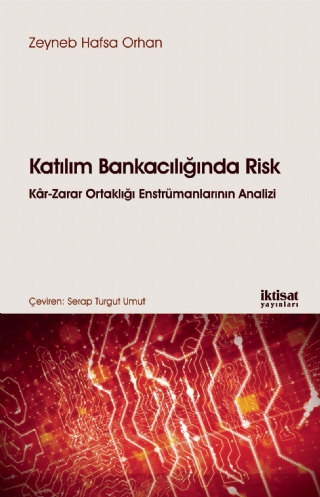Our Collaborations \ 1-2

The city of Jerusalem, which is considered sacred by Muslims, Christians and Jews, dates back to BC. It has an ancient history dating back to the 4000s. The dominance of states belonging to these religions in Jerusalem for different periods paved the way for the formation of holy places belonging to three religions in the city.
Various zoning activities carried out by the state in Jerusalem, which came under Ottoman rule in 1517, increased the quality of life of the city. One of the breaking points for Jerusalem in this period of domination that lasted until 1917 was the process that started with the French occupation of Egypt in 1798 and continued until the end of the Kavalalı Mehmed Ali Pasha rebellion in 1841. The emergence of the troubles in different parts of the state, such as the Wahhabi and Greek rebellions, in this time period, caused Jerusalem to be indirectly affected by these events, since it hosted different nations together.
In this study, which deals with the policy of the Ottoman Empire in Jerusalem between 1798-1841, the political events and administrative changes, the prominent activities in the approach of the state to Muslims, the rights granted by the state to non-Muslims and the ways of communication of the people with the state are examined.
Various zoning activities carried out by the state in Jerusalem, which came under Ottoman rule in 1517, increased the quality of life of the city. One of the breaking points for Jerusalem in this period of domination that lasted until 1917 was the process that started with the French occupation of Egypt in 1798 and continued until the end of the Kavalalı Mehmed Ali Pasha rebellion in 1841. The emergence of the troubles in different parts of the state, such as the Wahhabi and Greek rebellions, in this time period, caused Jerusalem to be indirectly affected by these events, since it hosted different nations together.
In this study, which deals with the policy of the Ottoman Empire in Jerusalem between 1798-1841, the political events and administrative changes, the prominent activities in the approach of the state to Muslims, the rights granted by the state to non-Muslims and the ways of communication of the people with the state are examined.
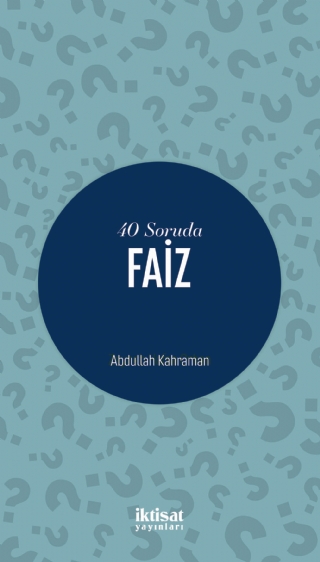
In this book, which is the eighth book in the "What You Need to Know in 40 Questions" series of books that provide short, practical and qualified answers to the questions of the reader about the practices or institutions related to Islamic economics, the subject of interest is discussed around 40 questions from various aspects. One of the main issues of the universal message sent by Allah (c.c.) to humanity is the prohibition of interest/riba. Because, interest is a practice that brings with it many harms, vices and evils in terms of religion, morality, social and economic aspects. The book deals with such an important subject as a whole; It has covered a wide area from its history to its implementation and the systems and discourses formed around it.

In this work, which is the first book in the "What You Need to Know in 40 Questions" series, consisting of books that provide practical, short and qualified answers to the questions of the reader about the practices and institutions in Islamic economics, information about Islamic banking in the world and the basics of the system known as participation banking in our country is presented in a theoretical way around 40 questions. It is given in a format that can be easily understood by people of all levels, rather than depth.
While determining the 40 questions in this book, it has been given importance to include all possible aspects of understanding participation banking and to take into account personal and social experiences with the questions asked so far. During the preparation of the answers to the questions, the experiences, thoughts and concerns of the individuals working in the sector, especially individual customers who have contact with participation banking, as well as the information obtained from the instructors and written materials were taken into account. In order not to tire the reader, a maximum of 400-500 words of explanation is given for each answer. In order to better understand the explanations, figures and figures were used where deemed appropriate. The main feature that distinguishes the book from the existing literature is that the segment it addresses is wider.
While determining the 40 questions in this book, it has been given importance to include all possible aspects of understanding participation banking and to take into account personal and social experiences with the questions asked so far. During the preparation of the answers to the questions, the experiences, thoughts and concerns of the individuals working in the sector, especially individual customers who have contact with participation banking, as well as the information obtained from the instructors and written materials were taken into account. In order not to tire the reader, a maximum of 400-500 words of explanation is given for each answer. In order to better understand the explanations, figures and figures were used where deemed appropriate. The main feature that distinguishes the book from the existing literature is that the segment it addresses is wider.

In this book, which is the seventh book in the "What You Need to Know in 40 Questions" series of books that provide short, practical and qualified answers to the questions of the reader about the practices or institutions related to Islamic economics, the subject of murabaha is handled around 40 questions from various aspects.
Murabaha contract is the type of contract that is mostly applied in the interest-free banking sector, which has been operating in different countries of the world since the 1970s, and largely determines the direction of the interest-free operation. In this context, examining the historical development, stages, problematic points and discussions of such a process will provide the reader with an important background in the field of Islamic economics and especially modern contracts. The questions addressed not only focus on the practical aspects of murabaha, but also aim to reveal the background of the process in many ways. In this respect, the content of the book includes the technical, fiqh, legal, economic and intellectual aspects of the subject.
Murabaha contract is the type of contract that is mostly applied in the interest-free banking sector, which has been operating in different countries of the world since the 1970s, and largely determines the direction of the interest-free operation. In this context, examining the historical development, stages, problematic points and discussions of such a process will provide the reader with an important background in the field of Islamic economics and especially modern contracts. The questions addressed not only focus on the practical aspects of murabaha, but also aim to reveal the background of the process in many ways. In this respect, the content of the book includes the technical, fiqh, legal, economic and intellectual aspects of the subject.

In this book, which is the sixth book in the "What You Need to Know in 40 Questions" series of books that provide short, practical and qualified answers to the questions of the reader about the practices or institutions related to Islamic economics, the subject of sukök and the stock market is discussed around 40 questions from various aspects.
Sukuk and stock market transactions, which are a special method of traditional securitization, are among the most important financial engineering issues of our time. As the issue is current, it is also quite intricate, comprehensive and variable. For this reason, the book presents these two subjects in an up-to-date framework that can be understood by people of all levels, with its fluent and plain language. The most important feature of the book compared to its counterparts is that it not only examines the subject from a descriptive and technical point of view, but also criticizes it in terms of jurisprudence.
Sukuk and stock market transactions, which are a special method of traditional securitization, are among the most important financial engineering issues of our time. As the issue is current, it is also quite intricate, comprehensive and variable. For this reason, the book presents these two subjects in an up-to-date framework that can be understood by people of all levels, with its fluent and plain language. The most important feature of the book compared to its counterparts is that it not only examines the subject from a descriptive and technical point of view, but also criticizes it in terms of jurisprudence.
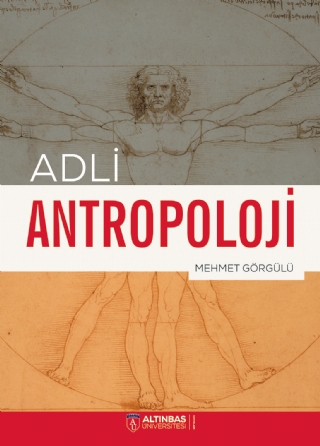
Forensic Anthropology is a science that has become increasingly important and developing in recent years. It provides important contributions to various branches of science, especially forensic Sciences, Law and Archeology. It has an indispensable importance in the identification of biological materials belonging to humans, animals and plants mainly in archaeological areas, and in the identification of corpses and skeletons in forensic sciences. Ancient DNA, which is one of the biological materials obtained in archeology, and genetic studies from corpses and skeletons in forensic and legal sciences have also developed considerably in recent years and have become one of the fields of study of Forensic Anthropology.

In this book, which is the second book of the Pocket Books series, which consists of books on the basic institutions and issues of Islamic economics, the subject of morality is tried to be explained in a content that can be easily understood by people of all levels, rather than a theoretical depth. Morality is one of the most fundamental issues that exist in all human societies. All economic, social and cultural systems are built on this foundation. Because morality is the set of basic values and rules that make it possible to live together with the society, in mutual solidarity and trust, which directs the instinctive desires of the individual to appropriate and legitimate social channels. The work in your hand deals with the place and role of morality in human life, which can be handled in a multi-dimensional and multi-dimensional way, in the context of economy, which is one of the most important relationship networks surrounding people in today's world. In this respect, in the first part of the work, the role of morality in the experience of living together, its relationship with law and religion, the reasons for the differences in business life are discussed, in the second part, the role of morality in the conduct of economic life is discussed, and finally, the effects of the marketization and globalization of the economy on morality are discussed.
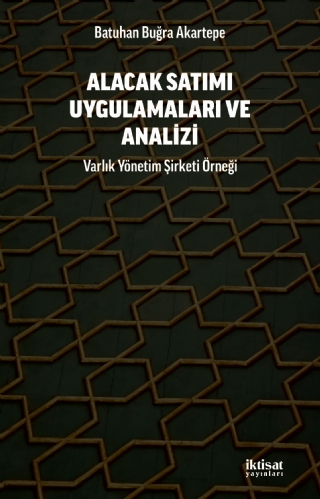
In the commercial relations that human beings have entered, they can pay the price of the products they buy in cash, or they can pay them in deferred payment by way of borrowing. Today, the majority of commercial relations are made by borrowing method and the maturity of the debts in question is long, causing the person or institutions in the position of creditors to have cash problems. The creditor party sells the receivables in question, which we expect to be collected from the debtor, in order to meet his cash needs and to eliminate the loss in the best way possible due to the debtors' insolvency. The book evaluates this practice, which has become widespread because it is a current issue that concerns the majority of the society, in terms of Islamic law. The amount of debt in the economies has increased as a result of the fact that commercial dyestuffs are not based on cash payments and are carried out mostly by borrowing. Due to the effects of economic crises and other factors, difficulties were experienced in repayment of debts and the loss of the creditor came to the fore. Various methods have been used to eliminate this damage. One of the theories operating in this context is the asset management companies that come to the forefront with their assignment of receivables. The purpose of this book, which deals with the assignment of receivables practices performed by asset management companies, is to determine the principles and provisions of Islamic law that are revealed from the subject of assignment of receivables, to analyze the activities of asset management companies in the field of application, and finally to evaluate the current practice according to the principles of Islamic law.
In the book, the sources of the Shafii, Hanteli, Maliki and Zahiri sects were also examined in order to evaluate the views put forward about the receivables sales transactions as the basis, as well as the views of the Hanafi sect.
In the book, the sources of the Shafii, Hanteli, Maliki and Zahiri sects were also examined in order to evaluate the views put forward about the receivables sales transactions as the basis, as well as the views of the Hanafi sect.

Likes have become a central issue of social life for today's people. From music to food, from clothing to holidays, from speech to venue, issues of taste are becoming more and more prominent. Therefore, tastes at the intersection of the individual and the social have more value than ever before in terms of understanding social change. The book in your hand consists of six articles compiled from the seminar series held by the İLEM Specialized Community Working Group in the 2016 Spring term. The articles mainly discuss the social change in daily life through tastes. It is aimed that this work, which will be a fundamental contribution to the field of the sociology of taste, which has recently come to the fore in our country, will be the basis for new discussions.
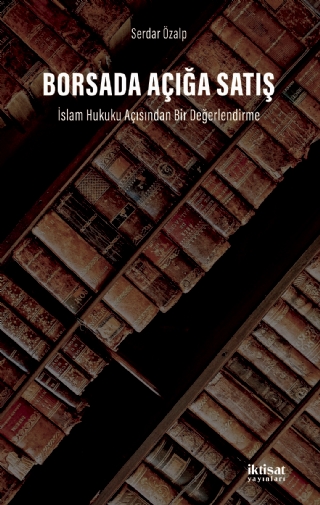
The stock market, which contains many transactions and applications, is important for Islamic economic studies.
As a matter of fact, the stock market, in terms of having shares, debt instruments, futures and options, precious metals and precious stones markets and many products and contracts belonging to these markets it has a rich structure in terms of subject for Islamic economic studies. Although the transactions applied in the stock market are based on a legal basis, the implementation of these transactions brings with it many fiqh issues and problems. The same is true for the short selling transaction, which is one of these transactions. Because the short selling process includes many fiqh issues. For this reason, the aim of the study is to reveal the technical implementation of the short selling process in the stock market.
and to make a fiqh evaluation.
The book deals with the aspects of short selling as a financial product that need legal analysis. In this regard, the subject; It examines the subject, purpose, importance, method and resources of the research in three parts together with the introduction part. In the first chapter, various concepts that can be encountered in short selling transactions are included and the issues that arise in the jurisprudence evaluation of the transaction are briefly touched upon. In the second part of the research, the definitions made for the short selling transaction are classified and discussed, and then the detailed application of the transaction, its types and its economic effects on the market are mentioned. In the third part, four subjects determined in terms of fiqh are discussed.
The evaluation of the process in terms of Islamic law is given.
The book constitutes an important contribution to the Turkish literature, especially considering the lack of a Turkish study dealing with the fiqh aspect of the subject.
As a matter of fact, the stock market, in terms of having shares, debt instruments, futures and options, precious metals and precious stones markets and many products and contracts belonging to these markets it has a rich structure in terms of subject for Islamic economic studies. Although the transactions applied in the stock market are based on a legal basis, the implementation of these transactions brings with it many fiqh issues and problems. The same is true for the short selling transaction, which is one of these transactions. Because the short selling process includes many fiqh issues. For this reason, the aim of the study is to reveal the technical implementation of the short selling process in the stock market.
and to make a fiqh evaluation.
The book deals with the aspects of short selling as a financial product that need legal analysis. In this regard, the subject; It examines the subject, purpose, importance, method and resources of the research in three parts together with the introduction part. In the first chapter, various concepts that can be encountered in short selling transactions are included and the issues that arise in the jurisprudence evaluation of the transaction are briefly touched upon. In the second part of the research, the definitions made for the short selling transaction are classified and discussed, and then the detailed application of the transaction, its types and its economic effects on the market are mentioned. In the third part, four subjects determined in terms of fiqh are discussed.
The evaluation of the process in terms of Islamic law is given.
The book constitutes an important contribution to the Turkish literature, especially considering the lack of a Turkish study dealing with the fiqh aspect of the subject.
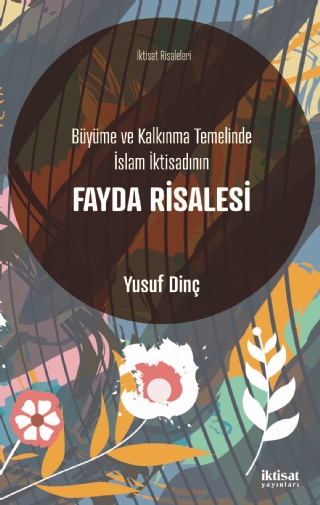
Growth is the most basic phenomenon that we encounter in all areas of life in the capitalist model. Because the model based on supply has indexed its sustainability to growth. In order to spread and sustain the capitalist codes of the system, societies are also organized with the motivation of growth and with rational or irrational codes according to the period. But this ideal, which the masses and societies are dragged after, is a cheap fiction and illusion. Because capitalism is a model of withholding. Growth is only the growth of the capitalist, and its benefits are denied to others. The treatise of utility reconsiders the theory of utility from the perspective of Islamic economics with its concrete (material) and intangible (spiritual) aspects. On the basis of production-consumption indivisibility, the author proposes a solution to the problem of the distribution of the produced income of capitalism with the principle of effort. The work, Hâce Yûsuf b. With the imagination that Ayyub al-Hamedânf placed on the theory of Rötbetü'l Hayat, he explains the economic structure of the utility dimensions ignored by capitalism with mathematical relations. While discussing the philosophical background that feeds the utility theory in the work, the details of the common set of fitra are examined. At the same time, while the financial intermediation paradigm is being questioned, determinations on the collective role of Islamic economic institutions are included.
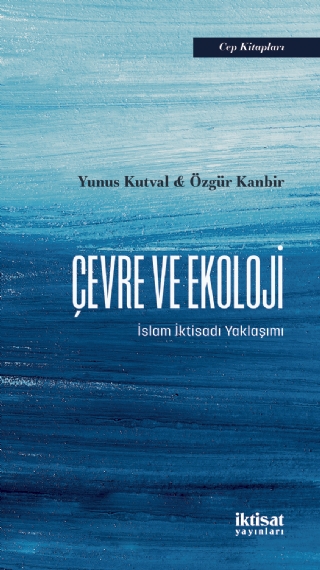
In this book, which is the seventh book in the Pocket Books series, which covers the basic institutions and issues of Islamic economics, the subject of environment and ecology has been tried to be explained in a content that can be easily understood by people of all levels, rather than a theoretical depth. Today, capitalism is largely abstracted from moral values. It sees the damages as human, global warming and environmental disasters. Islamic economics, which is shaped within the framework of the principles of the religion of Islam, rises as an alternative to these corrupt production relations based on exploiting human and nature. According to the religion of Islam, the vicegerent of Allah on earth is man. According to the human model defined by Islamic economics, which is shaped within the framework of Islamic principles, nature should be seen as a trust from the creator, all living and non-living beings should be respected, and economic activities with ethical values should be carried out, not production-consumption oriented. In this sense, the book approaches the subject of ecology and environment from the perspective of Islamic economics and offers solutions on the subject.

The educational institution Darülfünun, which was established as the university leg of the innovation movement in the last period of the Ottoman Empire, is an indicator of many things in the name of innovations and transformations made in the educational sense with the effect of the periodic break. In this sense, the moral lessons taught in Darülfünun also took their share from the transformation and breaking character of the period. In the book, the teachers who teach the moral courses, the syllabus and the works taught in the course constitute the subject of the research in an inseparable integrity. The follow-up of these elements shows the importance given to moral education at the university level at that time, the educational background of the teachers and the intellectual effects they have, as well as the moral understanding they defended with the moral studies they brought into being.
This book; By revealing how the innovations and regulations made in Darülfünun affect the existence of moral courses, how often they can be included in the curriculum, who the teachers who teach the ethics courses are, what education and intellectual inclination they have, what the works of these teachers about morality are, what effects they have, In addition to being a research that seeks answers to questions such as whether the change and transformation observed in moral courses can be extended to Darülfünun in general, it also reveals the transformation of moral understanding that emerged in the process in Darülfünun.
This book; By revealing how the innovations and regulations made in Darülfünun affect the existence of moral courses, how often they can be included in the curriculum, who the teachers who teach the ethics courses are, what education and intellectual inclination they have, what the works of these teachers about morality are, what effects they have, In addition to being a research that seeks answers to questions such as whether the change and transformation observed in moral courses can be extended to Darülfünun in general, it also reveals the transformation of moral understanding that emerged in the process in Darülfünun.
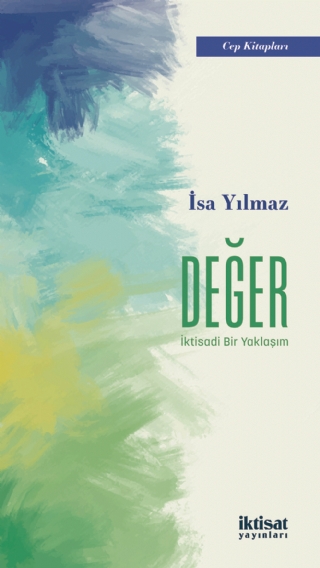
In this work, which is the fifth book of the Pocket Books series, which covers the basic institutions and issues of Islamic economics, the subject of value is tried to be explained in a content that can be understood by people of all levels, together with its theoretical and practical dimensions. In today's world, an economic understanding that we call capitalism, which has become global, seems to be universal and without alternatives, is dominant. Therefore, as people born into the modern world, we establish our economic relations within the limits set for us by capitalist production, consumption and distribution techniques. We think that we have no alternative but to speak the language of the dominant economic understanding and produce practice. We can attribute a suprahistorical role to these concepts by ignoring that the settlement of some concepts in the society in this created language has a historical process and context and that they continue to undergo a continuous change and transformation of meaning. This attitude makes us passive in economic relations and ties our hands in the construction of alternative economic systems. This work is part of the Pocket Books series based on the reinterpretation of basic concepts in economics. With this study, which deals with the concept of value, one of the most important concepts of economics, the meaning of a "value-free" economic thought based on unquestioning acceptance for many of us, the effect of this thought on our daily relations and the construction of a value-laden economic system beyond the current economic understanding. starting points are discussed.

Islamic economy/economics, which emerged as a concept in the 1930s, started to develop theoretically after the 1970s and became an academic field of study. This work presents the positions of the basic micro and macro issues of economics in this new field of study, both theoretically and
It is intended to demonstrate in practical terms. In this context, subjects such as methodology, political economy systems, state-market relations, fiscal and monetary policy, consumer and producer analysis, institutions are included. This book, which is structured to be used as an introductory one-semester course book in Islamic economics in terms of subject progression and segmentation, is also preferable for anyone interested in the subject because it does not have a heavy academic language. With the hope that it will contribute to the field as an original work written in Turkish, as well as related translation works published by İktisat Publishing until today...
It is intended to demonstrate in practical terms. In this context, subjects such as methodology, political economy systems, state-market relations, fiscal and monetary policy, consumer and producer analysis, institutions are included. This book, which is structured to be used as an introductory one-semester course book in Islamic economics in terms of subject progression and segmentation, is also preferable for anyone interested in the subject because it does not have a heavy academic language. With the hope that it will contribute to the field as an original work written in Turkish, as well as related translation works published by İktisat Publishing until today...
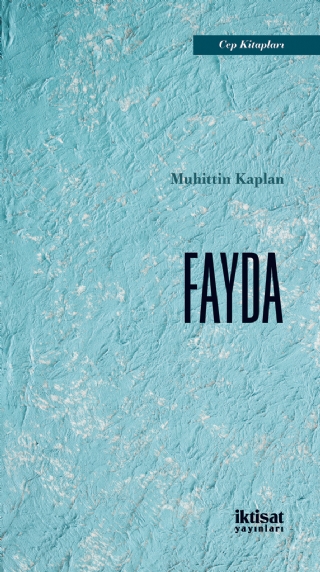
In this book, which is the eighth book in the Pocket Books series, which covers the basic institutions and issues of Islamic economics, the subject of utility is tried to be explained in a content that can be easily understood by people of all levels, rather than a theoretical depth. The book examines the meaning, role and importance of the concept of utility in modern economics and Islamic economic theory, taking into account the evolution of the concept over time. Accordingly, the book is organized into four parts. In the first part; The approach in which utility is defined as the ability of goods to meet human needs is discussed. In the second part; The approach in which benefit is defined as the satisfaction, pleasure and happiness obtained from the consumption of goods and services, that is, the "cardinal approach to benefit" has been examined. In the third part; The modern approach to the concept of utility, the "ordinate to utility" approach, in which utility is included in the analysis as a way to rank consumer preferences, is explained. In the fourth chapter, the framework of the concept of utility in Islamic economics is drawn and its differences from mainstream economics are explained.
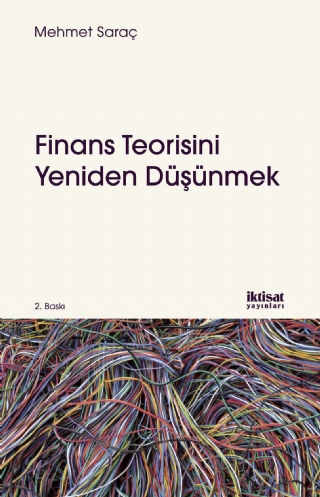
While the theoretical questioning of finance, which is a relatively young specific field among the sciences, is actually being questioned, the world view and human perception on which neoclassical economics is based, and perhaps beyond that, neoclassical economics is also questioned. While doing this, the source of knowledge, the methodology of science, how the Enlightenment process gave direction to these issues and the future of the concept of scientific knowledge are also included in the discussion to a certain extent.
Today, the most questionable point of conventional economics and the finance discipline derived from this understanding is that the epistemology of the economics and finance understanding and the assumptions on which it is based do not fully grasp the reality of human and existence. For this reason, post-modern humanity struggles with crises, cannot establish a sustainable economic system and is deprived of a fair distribution of wealth. This book deals with the debates, critical views, new trends and new paradigm searches, which have become more evident especially after the crises, regarding the theory of finance as a scientific field of study and the global financial system in terms of practice.
Today, the most questionable point of conventional economics and the finance discipline derived from this understanding is that the epistemology of the economics and finance understanding and the assumptions on which it is based do not fully grasp the reality of human and existence. For this reason, post-modern humanity struggles with crises, cannot establish a sustainable economic system and is deprived of a fair distribution of wealth. This book deals with the debates, critical views, new trends and new paradigm searches, which have become more evident especially after the crises, regarding the theory of finance as a scientific field of study and the global financial system in terms of practice.
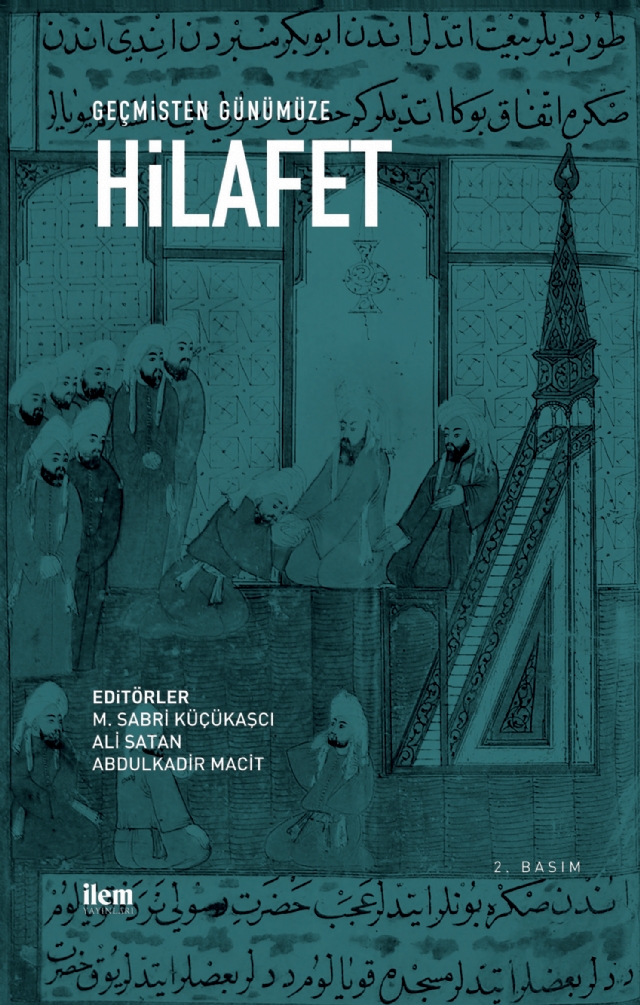
The caliphate, one of the most important institutions in the history of Islam, is among the critical concepts of the literature of Islamic political thought. The way the concept takes place in Islamic sources and its forms that have been the subject of theological and political thought have responded to the states' search for sovereignty and authority since the first periods of Islamic history.
This book, which includes 9 articles, puts forward the issues such as what kind of process the caliphate followed in the pre-modern period and what functions it fulfilled, and what discussions took place about it. It aims to benefit from the past experience in the determination and criticism of current issues.
It is hoped that this study/work, which contains the papers of the workshop held on the occasion of the 500th anniversary of the succession of the Caliphate to the Turks, will be instrumental in many more new/original researches and will serve to commemorate and understand this great historical heritage correctly.
This book, which includes 9 articles, puts forward the issues such as what kind of process the caliphate followed in the pre-modern period and what functions it fulfilled, and what discussions took place about it. It aims to benefit from the past experience in the determination and criticism of current issues.
It is hoped that this study/work, which contains the papers of the workshop held on the occasion of the 500th anniversary of the succession of the Caliphate to the Turks, will be instrumental in many more new/original researches and will serve to commemorate and understand this great historical heritage correctly.

Today, we see that an approach that set out to give a complete and precise explanation of reality gradually loses its power to explain reality and abolish reality itself. The reason why C0VID-19 pushes us to rethink reality, human, god and society as much as other epidemics, but more powerfully than them, is that the understanding that established the modern world has turned reality into a superstition on its way to show reality free from superstitions. It is precisely in this situation that we need to re-remember the reality that we have exchanged for a virtual image and learn from the consequences of this bad trade. This book, which invites us to direct our thinking holistically to reality, to the principles that establish it, and to man's relationship with these principles, says that just such an orientation is a good start for the lessons to be learned.
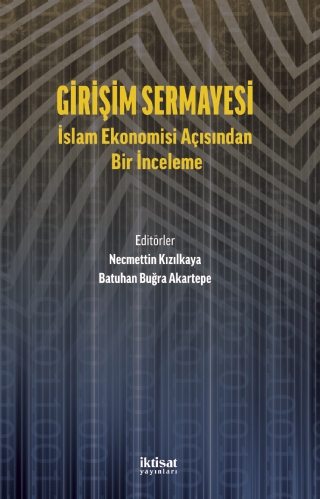
There have been people who are creative and have new ideas throughout history. These ideas led to the development of alternative models outside of the ongoing economic habits and opened the door to innovations.
Today, many innovations, especially in the field of technology, emerge as a result of the maturation of such ideas. Venture/venture capital is an important financial instrument in this respect, which refers to being a partner in these initiatives in order to meet the funding needs of individuals and companies with new ideas. It is an important feature of this partnership that one party takes the risk and aims to earn long-term returns by putting forth the capital of the other party and the creative thinking of the other party. In this respect, venture capital is an alternative model different from classical financing models. The profit-loss-based partnership structure in venture capital is suitable for the objectives that Islamic Economics wants to achieve. For this reason, it is an important investment tool that public and private institutions, universities and companies can apply, especially participation banks. This book in your hand examines the history, current situation, legal structure, economic opportunities, tax and accounting dimensions of venture capital. In this respect, it aims to fill an important gap in this issue, which has been neglected in terms of both theory and practice.
Today, many innovations, especially in the field of technology, emerge as a result of the maturation of such ideas. Venture/venture capital is an important financial instrument in this respect, which refers to being a partner in these initiatives in order to meet the funding needs of individuals and companies with new ideas. It is an important feature of this partnership that one party takes the risk and aims to earn long-term returns by putting forth the capital of the other party and the creative thinking of the other party. In this respect, venture capital is an alternative model different from classical financing models. The profit-loss-based partnership structure in venture capital is suitable for the objectives that Islamic Economics wants to achieve. For this reason, it is an important investment tool that public and private institutions, universities and companies can apply, especially participation banks. This book in your hand examines the history, current situation, legal structure, economic opportunities, tax and accounting dimensions of venture capital. In this respect, it aims to fill an important gap in this issue, which has been neglected in terms of both theory and practice.
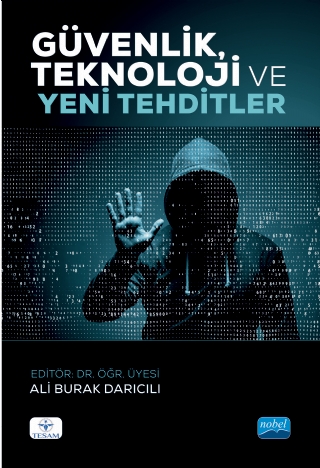
According to the research; Today, approximately 4.5 billion people use the internet, 5.2 billion people use mobile phones and an average of 6 hours and 43 minutes a day users spend time on the Internet. This shows that technology has permeated every aspect of life.
As a result of the rapid increase in the use of technology, individuals, business world and government institutions store or transfer their critical intelligence, economic and personal information through these technology tools. It is becoming more and more impossible for people to participate or contribute to business life without smartphone technologies. Social media applications have now become a very important information strategy product within the scope of cheap, flexible, effortless and crypto features. However, with the development of technology, security concerns have emerged in information systems depending on globalization. From the theft of personal data to the use of the Internet and social media as a propaganda tool by terrorist organizations, negative aspects that affect individuals and states have emerged.
In this book, different topics such as cyber security, social media, nuclear and military technology, terrorism and technology relationship, artificial intelligence technologies, urban security and technology, unmanned aerial vehicles (UAV) technologies, border security and technology are discussed and basically the relationship between technology and security. In this context, how technological progress will change security paradigms in the future and how it will affect individuals and states has been revealed.
As a result of the rapid increase in the use of technology, individuals, business world and government institutions store or transfer their critical intelligence, economic and personal information through these technology tools. It is becoming more and more impossible for people to participate or contribute to business life without smartphone technologies. Social media applications have now become a very important information strategy product within the scope of cheap, flexible, effortless and crypto features. However, with the development of technology, security concerns have emerged in information systems depending on globalization. From the theft of personal data to the use of the Internet and social media as a propaganda tool by terrorist organizations, negative aspects that affect individuals and states have emerged.
In this book, different topics such as cyber security, social media, nuclear and military technology, terrorism and technology relationship, artificial intelligence technologies, urban security and technology, unmanned aerial vehicles (UAV) technologies, border security and technology are discussed and basically the relationship between technology and security. In this context, how technological progress will change security paradigms in the future and how it will affect individuals and states has been revealed.

Although the nomenclature of Islamic Philosophy has an ancient history in terms of meaning, it is a fairly new composition as a name. In the first quarter of the 20th century, Islamic philosophy courses, which found a place in the curriculum as a result of the reforms in the field of education, which was an important pillar of the Ottoman modernization attempts, appear as an important area where this composition was transferred to the field of existence. In a time when Western values and thoughts make their presence felt, and sometimes domination, in the Islamic world, with which arguments Muslim Turkish intellectuals and scientists re-presented and defended their world of thought, how they meet and understand the criticisms and accusations against their realm of existence, and how they are trying to attract and/or dispose of; How they define the history of Islamic philosophy/thought within the current conditions and conditions remains among the intriguing questions.
This study in your hand II. It examines the formation process of philosophy and Islamic philosophy courses in Darülfünun and madrasah, which started to be included in the curriculum with the reform movements that took place in the field of education after the Constitutional Monarchy, and the teachers of these courses, the texts taught in Islamic philosophy courses, and sheds some light on our modernization history.
This study in your hand II. It examines the formation process of philosophy and Islamic philosophy courses in Darülfünun and madrasah, which started to be included in the curriculum with the reform movements that took place in the field of education after the Constitutional Monarchy, and the teachers of these courses, the texts taught in Islamic philosophy courses, and sheds some light on our modernization history.

There are two basic dynamics of shaping contemporary thought in Muslim societies. The first of these is related to internal developments and the other to external conditions. Including? as intellectuals and ulama; They encountered issues such as the meaning and maintenance of tradition, the structure and change of Muslim identity, interpretation of new social problems and producing solutions, and making sense of political developments. In this framework, the main agenda has been formed within the framework of the problematic of Islamic renewal, and the second dynamic is external factors. In this respect, the confrontation with modern technology, industry and bureaucracy in the 19th century caused Muslim societies to go into a serious crisis. While this crisis caused Muslim societies to not be able to maintain their own intellectual lives, the need to respond and overcome it also gave a new form to thought. This communication with the outside has created various intermediate forms by interacting with Islamic concepts and thoughts.
Discussing the basic elements and limits of Islamic thought and examining its counterpart in the contemporary world has become a necessary ground. These discussions are possible by understanding the explanation of the basic concepts of Islamism, its use and transformation throughout history. Since the second half of the 19th century, the concepts of revival, reform, and reform have come to the fore as an offer against the problems that Muslim peoples are dealing with. These are concepts that have a deep-rooted history in the tradition of Islamic thought and politics, although they have been transformed in modern discourse and used in some places before the other.
The workshops, which were held within the scope of the Islamist Journals Project, with the banner of Basic Issues and Concepts, aim to add new dimensions to the rooted discussions of Islamist thought. As a product of this effort, this book is an enhanced version of the presentations made by Mehmet Ali Büyükkara, Özgür Kavak and Murat Kayacan at the "Improvement" workshop held on November 23, 2019. This book is an in-depth analysis of the issues and approaches on which Islamist thought is built. serial offer.
Discussing the basic elements and limits of Islamic thought and examining its counterpart in the contemporary world has become a necessary ground. These discussions are possible by understanding the explanation of the basic concepts of Islamism, its use and transformation throughout history. Since the second half of the 19th century, the concepts of revival, reform, and reform have come to the fore as an offer against the problems that Muslim peoples are dealing with. These are concepts that have a deep-rooted history in the tradition of Islamic thought and politics, although they have been transformed in modern discourse and used in some places before the other.
The workshops, which were held within the scope of the Islamist Journals Project, with the banner of Basic Issues and Concepts, aim to add new dimensions to the rooted discussions of Islamist thought. As a product of this effort, this book is an enhanced version of the presentations made by Mehmet Ali Büyükkara, Özgür Kavak and Murat Kayacan at the "Improvement" workshop held on November 23, 2019. This book is an in-depth analysis of the issues and approaches on which Islamist thought is built. serial offer.

From the moment we were convinced that man was born without a given meaning and was defined by the functions or roles he was assigned from the moment he opened his eyes, it became increasingly difficult to expect anything from man. Moreover, such expectations were always confronted with demands for freedom. This book is "What can we expect from a free man?" It grew out of a strong belief that the question can still be asked in a meaningful way. The different conceptions of man in the Islamic tradition of thought, despite all their differences, are optimistic about our expectations of man. However, how this expectation can be grounded. He found different answers within the philosophical, theological, mystical and jurisprudential perspectives in the tradition of Islamic thought.
The study, which includes fourteen articles, investigates the answers given by different disciplines in the tradition of Islamic thought and the different schools within these disciplines to the question of what a human is and what is really expected of him. For these perspectives, which all consider human life as a long story that progresses in a constant test, human is always something that is "being". The main factors that direct our ability to "be", where this ability should lead, and the areas of accrual constitute important topics in the evaluations of what a human being is. The articles in this study proceed through these questions, while investigating the nature of human beings in the traditions of philosophy, theology, mysticism and fiqh, on the other hand, they deepen the current possibilities of these perspectives.
The study, which includes fourteen articles, investigates the answers given by different disciplines in the tradition of Islamic thought and the different schools within these disciplines to the question of what a human is and what is really expected of him. For these perspectives, which all consider human life as a long story that progresses in a constant test, human is always something that is "being". The main factors that direct our ability to "be", where this ability should lead, and the areas of accrual constitute important topics in the evaluations of what a human being is. The articles in this study proceed through these questions, while investigating the nature of human beings in the traditions of philosophy, theology, mysticism and fiqh, on the other hand, they deepen the current possibilities of these perspectives.

The conceptions of the nature of man, the ethics of human actions throughout history. determined his political and metaphysical orientations. Therefore, it can be said that many emerging structures, from moral choices to social organizations, from state orders to education systems, are a direct or indirect manifestation of the answer to the question of what human is. For this reason, the question of what man is is central to any conception of the world. modernity. By radically transforming the classical conceptions of the nature of man, he revealed one of the most important breaks in human history. It is therefore a way of achieving a correct understanding of the modern period. It is through identifying and analyzing the transformations of human imagination in this period.
In this book, the debates about the nature of human being in modern Western thought are discussed and the effects of different definitions of human in these fields on the formation and transformation of various scientific disciplines are evaluated. In addition, the book also includes various debates in contemporary Islamic thought, providing an answer to the question of how the transformations that emerged with modernity affect human conceptions in the Islamic world. In this way, readers will have the opportunity to follow the simultaneous and simultaneous effects of the radically changing universe and human imagination.
In this book, the debates about the nature of human being in modern Western thought are discussed and the effects of different definitions of human in these fields on the formation and transformation of various scientific disciplines are evaluated. In addition, the book also includes various debates in contemporary Islamic thought, providing an answer to the question of how the transformations that emerged with modernity affect human conceptions in the Islamic world. In this way, readers will have the opportunity to follow the simultaneous and simultaneous effects of the radically changing universe and human imagination.

Ethics is a field that has been widely discussed in Islamic thought, from practical philosophy to various religious sciences. In this respect, while morality is accepted as one of the philosophical sciences, it is also discussed with different aspects in religious sciences such as hadith, kalam, fiqh and mysticism. In order to examine and present morality, which is at the intersection of multiple disciplines, with all its dimensions, these sciences should be considered in terms of their own internal dynamics. Such an effort seems essential for understanding the morality in Islamic thought with all its dimensions.
In line with this need, roundtable meetings titled "Basic Characteristics of Islamic Moral Literature" were held between March 2013 and March 201A within the scope of the "Islamic Moral Thought Project" carried out by the Scientific Studies Association (ILEM) and the Science Culture and Education Association (ILKE), and the literature on morality has its own discussed in terms of their specifics. This book in your hand consists of the articles of the presentations made at these meetings.
In line with this need, roundtable meetings titled "Basic Characteristics of Islamic Moral Literature" were held between March 2013 and March 201A within the scope of the "Islamic Moral Thought Project" carried out by the Scientific Studies Association (ILEM) and the Science Culture and Education Association (ILKE), and the literature on morality has its own discussed in terms of their specifics. This book in your hand consists of the articles of the presentations made at these meetings.

The debate about whether the biological and hereditary characteristics inherited in the formation and differentiation of personality, which can be expressed as human nature in the most general sense, or whether the diversity of experiences are of fundamental importance, points to a problem that can be traced back to the early periods of philosophy and continues to exist with the same vitality today. The theories of temperament, as a way of explaining human nature, are related to physics and medicine, while their results are directly related to human actions and being in this world.
The book in your hand is an expanded output of the roundtable meetings held in 2015 on the theories of temperament in Islamic thought within the scope of the Islamic Moral Thought Project. Articles in the book; It focuses on the temperament theory, which has a very central place in the understanding of human personality and character, after Hippocrates (375 BC) and Galen (d. 200), and more specifically, the appearance of the problem in some Islamic philosophers and theologians. The book aims to be a start for readers who want to deal with the subject and to contribute to new reading, understanding and interpretation processes that will be made in comparison with the new aspects of the problem.
The book in your hand is an expanded output of the roundtable meetings held in 2015 on the theories of temperament in Islamic thought within the scope of the Islamic Moral Thought Project. Articles in the book; It focuses on the temperament theory, which has a very central place in the understanding of human personality and character, after Hippocrates (375 BC) and Galen (d. 200), and more specifically, the appearance of the problem in some Islamic philosophers and theologians. The book aims to be a start for readers who want to deal with the subject and to contribute to new reading, understanding and interpretation processes that will be made in comparison with the new aspects of the problem.

This study, which is an attempt to analyze the etymology of the concept of love (al-mehabbe), aims to reveal the expansions of the concept of love in Islamic thought regarding its metaphysical, physical, moral and political dimensions.
In the study, by pointing out the difference in nature of the love of Allah and the love of the creatures, the problems that Islamic thinkers discussed around the concept of love were included, thus providing the opportunity to compare the writings of Islamic philosophers, theologians and mystics about love.
This work, which reveals the analysis of the concept of love in the light of the texts written on Islamic thought, aims to inform its readers that love is an indispensable trait for the individual to gain moral competence and to establish social cohesion perfectly.
In the study, by pointing out the difference in nature of the love of Allah and the love of the creatures, the problems that Islamic thinkers discussed around the concept of love were included, thus providing the opportunity to compare the writings of Islamic philosophers, theologians and mystics about love.
This work, which reveals the analysis of the concept of love in the light of the texts written on Islamic thought, aims to inform its readers that love is an indispensable trait for the individual to gain moral competence and to establish social cohesion perfectly.
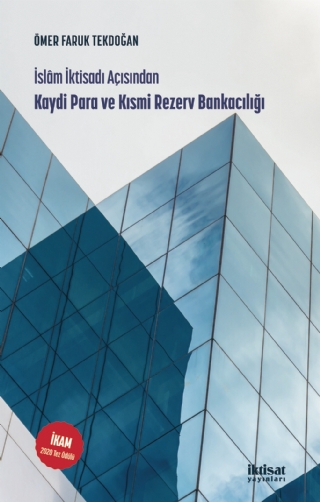
The partial reserve system, which we can call the basis of modern finance, has been the subject of discussion from past to present due to its weak structure, the role it played in economic instability and the problems it created. This interest-based system, which ensures that most of the money supply is dematerialized, has led to a macro-ribâ system that envelops economic life. The full reserve system, which was developed as an alternative to this system, could not find its place in practice. From the point of view of Islamic economics, the fact that the current system is riba-oriented and causes an unfair distribution of resources has necessitated the evaluation of the alternatives put forward from this perspective. The fractional reserve system operates based on confidence that commercial banks and central banks will provide sufficient liquidity when needed, and thus in essence it is prone to financial crises.
is weak and fragile. From this perspective in the book, the problems that are claimed to arise in economies with the discovery of fractional reserve banking are examined, the applicability of full reserve banking and how sufficient it is for a solution are examined, and the suitability and drawbacks of both systems in terms of Islamic economics are discussed. In addition, the effect of both banking systems on economic stability was compared using an agent-based simulation model.
is weak and fragile. From this perspective in the book, the problems that are claimed to arise in economies with the discovery of fractional reserve banking are examined, the applicability of full reserve banking and how sufficient it is for a solution are examined, and the suitability and drawbacks of both systems in terms of Islamic economics are discussed. In addition, the effect of both banking systems on economic stability was compared using an agent-based simulation model.
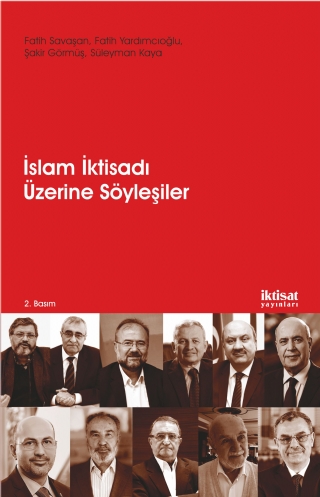
Many issues such as what the economic view of Islam is, whether it offers an economic system, what solutions it provides to people's needs, and through which institutions historically Muslims carry out their economic activities have been discussed by different segments for a long time and still continue to be discussed. Not only theoretical efforts, but also many practical efforts have been put forward and institutions have been established. Sometimes the practice side, led by Islamic banks, directed other theoretical studies, and sometimes the theory tried to influence the practice. On the other hand, with the growth of Islamic finance, regulatory authorities have inevitably been included in this ecosystem. In the end, many stakeholders, interconnected or not, ponder on Islamic economics and finance and contribute to keeping this field on the agenda.
Studies in the field of Islamic economics and finance have increased for Turkey, especially after the 1980s. Islamic lawyers, employees in the Islamic finance sector, regulatory agencies, academics and many more contribute to the field. Among them, some names played leading roles in their own fields and have been influential in the reaching of Islamic economics and finance to a much wider audience today. This book consists of interviews with professors who have worked in this field for many years, industry representatives and regulators operating in the field of Islamic finance.
Studies in the field of Islamic economics and finance have increased for Turkey, especially after the 1980s. Islamic lawyers, employees in the Islamic finance sector, regulatory agencies, academics and many more contribute to the field. Among them, some names played leading roles in their own fields and have been influential in the reaching of Islamic economics and finance to a much wider audience today. This book consists of interviews with professors who have worked in this field for many years, industry representatives and regulators operating in the field of Islamic finance.
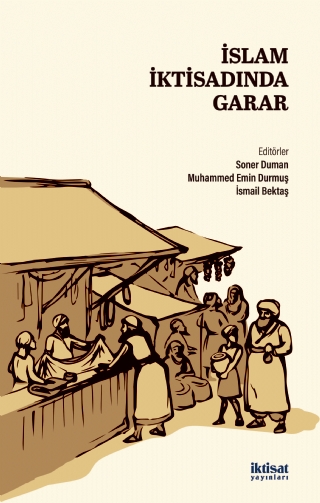
The most basic principles that Islam observes in human relations; observance of justice, prevention of injustice, ensuring social stability, entrusting the trust to those who are competent, open and transparent relations between people, preventing transactions and dispositions that may lead to conflicts between people. These principles also guided the instructions of Islam regarding commercial relations between people. In this context, tortious acts such as theft and extortion are prohibited, as well as interest, verbal or de facto cheating that leads to the exploitation of one party in contracts.
Garar, which is the subject of this book, is also prohibited because it causes commercial relations between people to be carried out in an open and transparent manner and cause conflicts and fights between people. The book consists of the papers presented in the workshop named "Garar in Classical Fiqh and Its Effect on Today's Economic Transactions", which was organized with the aim of addressing many aspects of the ban on garar, which was discussed in the classical fiqh literature and also encountered in modern economic transactions, by the participants, which were developed and converted into articles. This book, in which different authors deal with the prohibition of garar in Islamic fiqh from conceptual, intellectual and methodological perspectives, has been brought together in order to establish a solid link between our classical fiqh heritage and today's economic affairs.
Garar, which is the subject of this book, is also prohibited because it causes commercial relations between people to be carried out in an open and transparent manner and cause conflicts and fights between people. The book consists of the papers presented in the workshop named "Garar in Classical Fiqh and Its Effect on Today's Economic Transactions", which was organized with the aim of addressing many aspects of the ban on garar, which was discussed in the classical fiqh literature and also encountered in modern economic transactions, by the participants, which were developed and converted into articles. This book, in which different authors deal with the prohibition of garar in Islamic fiqh from conceptual, intellectual and methodological perspectives, has been brought together in order to establish a solid link between our classical fiqh heritage and today's economic affairs.
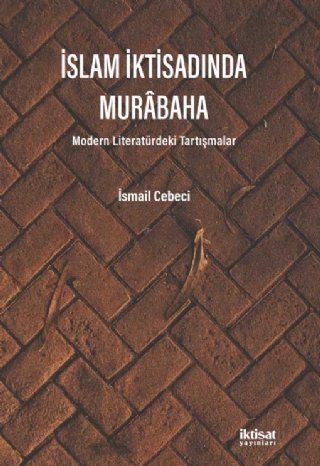
Murabaha contract is one of the most applied and discussed transactions in the interest-free financial system. In the process that has been going on since the 1970s, when interest-free banking began, the subject of murabaha, which has been in the field of interest of many scientific disciplines, especially fiqh and economics, has been an issue that has attracted the attention of the academic community as well as being important for the real sector. The main purpose of this study is to deal with the historical development of such a contract, to follow the stages it went through and to examine the debates about the problematic points it has.
Murabaha, which is known as "production support" and "corporate and individual financing support" in practice in Turkey, is a larger-scale and most widely used transaction today, has common issues with other investment-financing models, as well as many different The fact that it contains a problem point, is the most discussed transaction in the modern period, and shows how a classical contract was modernized are the factors that make this contract important. Murabaha fiqh, economic, social, etc. This study, which aims to address various aspects with a critical and holistic perspective and to reveal the course of reasoning and judgment-making activities in modern Islamic economics problems based on the existing literature, is a candidate to fill an important gap in the literature.
Murabaha, which is known as "production support" and "corporate and individual financing support" in practice in Turkey, is a larger-scale and most widely used transaction today, has common issues with other investment-financing models, as well as many different The fact that it contains a problem point, is the most discussed transaction in the modern period, and shows how a classical contract was modernized are the factors that make this contract important. Murabaha fiqh, economic, social, etc. This study, which aims to address various aspects with a critical and holistic perspective and to reveal the course of reasoning and judgment-making activities in modern Islamic economics problems based on the existing literature, is a candidate to fill an important gap in the literature.

There are many attempts to define the nature of man. The most common and almost agreed upon among these attempts is that man is a political creature. Man is a being who lives in a community, makes sense and establishes himself in a community. However, the transformation of this obligatory union of people into a good and fair system poses an important problem. Various political systems have been developed throughout history to establish and maintain such a social order. One of the most important and urgent problems facing humanity today is the formation of a good, beneficial and just order for everyone.
This work has been prepared in order to draw a theoretical framework for Islamic political thought by using the possibilities and tools of contemporary political science and political philosophy.
This book, which includes 11 articles written by competent academics in the field, aims to provide new expansions of classical origin to Islamic political thought, which has been shaped by Western influence in the modern period. For this reason, it aims to systematically address ancient issues in a conceptual continuity and thus to bring Islamic political thought to the present.
This work has been prepared in order to draw a theoretical framework for Islamic political thought by using the possibilities and tools of contemporary political science and political philosophy.
This book, which includes 11 articles written by competent academics in the field, aims to provide new expansions of classical origin to Islamic political thought, which has been shaped by Western influence in the modern period. For this reason, it aims to systematically address ancient issues in a conceptual continuity and thus to bring Islamic political thought to the present.
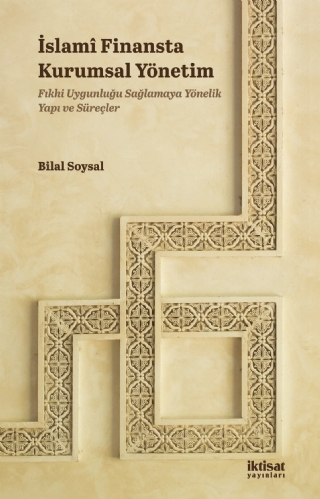
For an Islamic financial institution to survive and grow, it is essential that all stakeholders adopt a corporate governance approach to increase their trust in the institution. An effective corporate governance is necessary for an Islamic financial institution to manage the risk of non-compliance with Fiqh principles and rules, to grow in a healthy way, and to properly protect the interests of all stakeholders. In this context, an important part of corporate governance in Islamic financial institutions is an effective "Fiqh Compliance Management System" aimed at ensuring the compliance of activities with fiqh principles and rules. This book explains the Fiqh Compliance Management System in Islamic financial institutions in detail within the framework of literature and international standards, and the approaches of countries to the subject. it reflects in the context of legal regulations and reveals the situation of Turkey compared to other countries.

The period between 1960 and 1980 is a period that is talked about a lot in Turkey, but little is known about it. This work; tells the story of this critical period through visuals. Islamism, like other currents of thought, became more visible in the 1960s.
and acquired an assertive language. From this point of view, 1960Tar embodies various beginnings for Turkish political and intellectual life and is vital in terms of understanding the aftermath. This book deals with the emergence of new public manifestations of Islam in Turkey since the 1960s. For this purpose, the book is knitted around selected images from magazines. This work, which we call publicized Islam, tells us about the return of the oppressed. As the pages of the book are opened, it is witnessed that Islam gains visibility in public life gradually. The manifestation of a different aspect awaits the reader on each page. This study, which deals with the subject through visuals, offers a new horizon in understanding the intellectual history of Turkey.
and acquired an assertive language. From this point of view, 1960Tar embodies various beginnings for Turkish political and intellectual life and is vital in terms of understanding the aftermath. This book deals with the emergence of new public manifestations of Islam in Turkey since the 1960s. For this purpose, the book is knitted around selected images from magazines. This work, which we call publicized Islam, tells us about the return of the oppressed. As the pages of the book are opened, it is witnessed that Islam gains visibility in public life gradually. The manifestation of a different aspect awaits the reader on each page. This study, which deals with the subject through visuals, offers a new horizon in understanding the intellectual history of Turkey.

Jerusalem contains a witness that has been given to very few cities in history. In the past century, the occupation of Jerusalem and the problems of the Islamic World have progressed in parallel. This situation requires a multidimensional evaluation with its intellectual, geographical, socio-cultural and economic components, beyond being an issue that only awaits a political solution.
Jerusalem studies are getting richer day by day. Uncovering the social and spatial remnant of the ancient city and producing the scientific archive against the destruction of Jerusalem by reduced interventions to the nation ideology is seen as an indispensable prerequisite for these researches.
The book in your hand has been prepared with the aim of contributing to the expanding Jerusalem Library in Turkey. In the book, a versatile Jerusalem perspective is presented through original studies that evaluate Jerusalem in terms of its historical, cultural, urban and architectural dimensions and address the Jerusalem issue from the perspective of international law.
Jerusalem studies are getting richer day by day. Uncovering the social and spatial remnant of the ancient city and producing the scientific archive against the destruction of Jerusalem by reduced interventions to the nation ideology is seen as an indispensable prerequisite for these researches.
The book in your hand has been prepared with the aim of contributing to the expanding Jerusalem Library in Turkey. In the book, a versatile Jerusalem perspective is presented through original studies that evaluate Jerusalem in terms of its historical, cultural, urban and architectural dimensions and address the Jerusalem issue from the perspective of international law.

This work examines the concepts of property, property and market, which are the main subjects of economics, from the perspectives of both Islamic and conventional economics. Goods are the basis of economic life, because goods are the name of the means that meet the needs of people. Man has material and intangible needs. A person pursues them all his life. If his material needs are met, he will be prosperous, and if his intangible needs are met, he will attain happiness. People try to acquire property from the moment they know themselves. The name of owning and owning a property is called property. Property entitles people to that property and provides the right to dispose and use it. This is also called "possession". Normally, people buy the goods by giving their money. The sale process is also done in the bazaar, in the market. The word market, which comes from Italian, is used in the sense of market. The movable goods are both displayed and sold in the bazaars, shops, week markets, stock exchanges, formerly fairs and now fairs. Real estates are bought and sold in the land registry offices of the state.
In this work, the author analyzed the definition and properties of goods, their moral evaluation, the subject of ownership, the ownership of production factors, and the protection of property, both from a secular and Islamic point of view, in his six-part analysis.
In this work, the author analyzed the definition and properties of goods, their moral evaluation, the subject of ownership, the ownership of production factors, and the protection of property, both from a secular and Islamic point of view, in his six-part analysis.

XIX. historiography in 19th-century Egypt; It is analyzed through Abdurrahman al-Ceberti, Abdullah al-Sharkavi, Ismail al-Haşşâb, Ahmed er-Recebî, Nikola et-Türk and their works. This work, which is the first in Turkish literature, deals with the main sources in Arabic as well as related researches in the English and partly French literature. The work has a special importance in Ottoman historiography as it enables the comparison of the last period historiography. In this respect, it presents interesting examples from the field about historiography, historical thought and procedure. In the work; Mamluks, Wahhabis, Azhar ulema, Egyptian society, declarations about the propaganda of the image of Muslim-French distributed to the public during the French occupation, Kavalalı Mehmed Ali Pasha and his period are among the prominent issues.
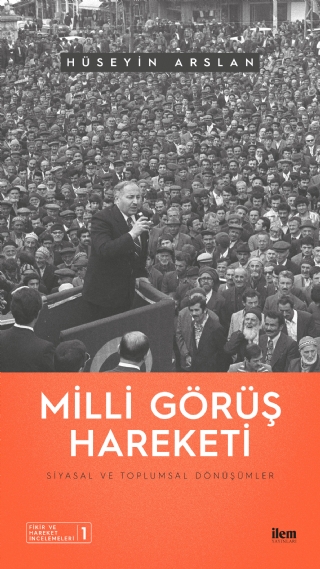
The book Milli Gorus Movement: Political and Social Transformations is an analysis of a movement that left its mark on the political history of Turkey and became the catalyst for social transformation. The Milli Gorus movement, which started with the entry of Necmettin Erbakan into politics in 1969, marks a turning point for Turkish political life and Islamist thought.
The history of Turkey cannot be analyzed clearly without considering the National Vision movement, which is the core of many social structures, institutions and political parties that still affect Turkish politics today.
With the "Idea and Movement Studies" series, it is aimed to present a framework and an original view on the main names, journals and issues that reflect the intellectual accumulation of Islamism and appear in almost every field. The books to be included in the series cover topics that are curious in different fields of Islamist thought. In this framework, it is aimed to contribute to the understanding of the issues on a basic and introductory level.
The history of Turkey cannot be analyzed clearly without considering the National Vision movement, which is the core of many social structures, institutions and political parties that still affect Turkish politics today.
With the "Idea and Movement Studies" series, it is aimed to present a framework and an original view on the main names, journals and issues that reflect the intellectual accumulation of Islamism and appear in almost every field. The books to be included in the series cover topics that are curious in different fields of Islamist thought. In this framework, it is aimed to contribute to the understanding of the issues on a basic and introductory level.

Studies on Islamic movements, or more specifically the Muslim Brotherhood, have often focused on ideological foundations or tensions with the political regime. Although there are a limited number of analyzes on the organizational structure of the movements, the way they are organized, the method of education and ideological indoctrination in these studies, the factor of institutionalization has always been left out of consideration in these analyses. The most important reason underlying this is that Islamic movements are not accepted as political institutions. Considering that political institutions are structures that attribute value and identity to their members, Islamic movements should be accepted as political institutions and their institutionalization processes should be taken into account, since they have similar characteristics. In this context, the book in your hand tries to answer the question of how the institutionalization processes of Islamic movements should be analyzed based on the assumption that they are also political institutions. In the book, in the example of the Muslim Brotherhood, which is considered the pioneer of Islamic movements, the institutionalization problem of the Movement is analyzed over six parameters, and the level of institutionalization of the structure is analyzed within the framework of its relationship with the Egyptian regime, in addition to the internal tensions and debates it has experienced since 1928.

Although it is noteworthy that one of the cornerstones necessary to understand and make sense of the Middle East after the 2011 Arab uprisings is the relationship between politics and religion in the region, the importance of the issue is increasing day by day. As academics in Turkey, we tried to deal with the developments in the region and the background of the events.
As part of the ILEM Islamic Political Thought Project, we held a series of seminars under the heading "Politics and Religion in the Middle East". Our aim was to try to understand the politics-religion relationship in the region through different religious and political schools. In 2017, we tried to deal with issues in a different spectrum, from the origins of the two main currents in the region, $ii and Sunni political thoughts, to today's political reflections. Of course, the issues we deal with are neither limited to the seminars nor as they appear in the book; has much broader extensions. Nevertheless, we tried to produce a comprehensive and representative work.
As part of the ILEM Islamic Political Thought Project, we held a series of seminars under the heading "Politics and Religion in the Middle East". Our aim was to try to understand the politics-religion relationship in the region through different religious and political schools. In 2017, we tried to deal with issues in a different spectrum, from the origins of the two main currents in the region, $ii and Sunni political thoughts, to today's political reflections. Of course, the issues we deal with are neither limited to the seminars nor as they appear in the book; has much broader extensions. Nevertheless, we tried to produce a comprehensive and representative work.

In this book, the changing economic financial conditions in the Ottoman Empire after the declaration of the Tanzimat Ferman, both in terms of its content and social, legal and economic influence, were shaped around the idea of establishing a bank, which was one of the new practices for that period. As a matter of fact, the idea of 'establishing a state bank' for the Ottomans and the dynamics and intellectual infrastructure of its implementation is an important economic history event that needs to be examined.
This book in your hand examines the organizational characteristics of Dersaadet Bank, the first example of the Ottoman banking activities started in the second half of the 19th century, and the economic conditions of the period in which it started to operate, as well as the financial and commercial dimensions of its mission, with the help of Ottoman archive sources. This study has tried to show how the trade and business networks of the Tanzimat Period were shaped through financial markets, the nature of the entrepreneurial networks owned by the partnerships of merchants and bankers, and what features they contain in this sense, through the records of Dersaadet Bankası. This book, which can be considered as an essay on the purpose of the bank's establishment, the close relationship of the policy transactions it carried out with foreign trade and the Ottoman monetary system, and the revealing of the Ottoman entrepreneurial business networks through this experience, gives the reader a thematic overview of the 'Ottoman History of Economics, Business and Finance' literature. offers pain.
This book in your hand examines the organizational characteristics of Dersaadet Bank, the first example of the Ottoman banking activities started in the second half of the 19th century, and the economic conditions of the period in which it started to operate, as well as the financial and commercial dimensions of its mission, with the help of Ottoman archive sources. This study has tried to show how the trade and business networks of the Tanzimat Period were shaped through financial markets, the nature of the entrepreneurial networks owned by the partnerships of merchants and bankers, and what features they contain in this sense, through the records of Dersaadet Bankası. This book, which can be considered as an essay on the purpose of the bank's establishment, the close relationship of the policy transactions it carried out with foreign trade and the Ottoman monetary system, and the revealing of the Ottoman entrepreneurial business networks through this experience, gives the reader a thematic overview of the 'Ottoman History of Economics, Business and Finance' literature. offers pain.
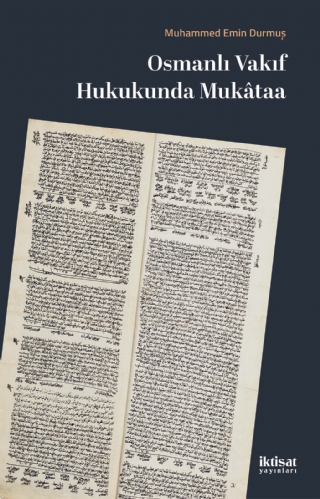
The concept of mukâtaa is used to express practices that have different legal consequences in foundation law, as in Ottoman financial law. In this study, the focus is mainly on the practice of mukataa, which means renting the foundation land to anyone who wants to build a building or plant a tree, with the right of decision and ownership of it. The foundations of the mukâtaa practice date back to before the Ottoman Empire, and the Ottomans further developed this practice, which they inherited, with some arrangements and used it for centuries. However, Ottoman lawyers, who saw that the mukâtaa practice caused the abuse of foundations over time, did not insist on this practice, on the contrary, they developed the more advantageous icâreteyn practice for foundations. This shows that mukataa paved the way for the practice of icareteyn. In this book, the historical background, nature, different practices, conditions, legal principles and rights of the mukataa contract in the 16th and 17th centuries have been tried to be revealed, especially based on fatwa journals and sharia registers.

When the Boss, who founded and grew his company with great difficulty, transfers the management of his company to a professional manager called the CEO / General Manager, that's when the problems begin to arise. Because, unfortunately, the saying of our forefathers, “the agent is like a principal”, is not always valid in company management. Alright;
Why can't the CEO (deputy) be like the Boss (principal)?
• Should the boss really be afraid of handing over the management of his company to a CEO?
•What are the common unethical behaviors of CEOs? Why and when do they exhibit these behaviors?
•How can the boss be protected from the CEO's potential wrong/unethical behavior?
• In what way the company's management system and Boss-CEO relations are designed, the saying “the agent is like a principal” is valid in the company management?
The book “The CEO of the Boss”, written by Saim Kılıç and Ali Alp, answers all these questions with an impartial perspective, plain language and concrete examples; explains the ways in which the ideal CEO of the boss can be created. This book, which includes many recommendations based on years of experience and observations, is an invaluable guide for bosses and CEOs alike.
Why can't the CEO (deputy) be like the Boss (principal)?
• Should the boss really be afraid of handing over the management of his company to a CEO?
•What are the common unethical behaviors of CEOs? Why and when do they exhibit these behaviors?
•How can the boss be protected from the CEO's potential wrong/unethical behavior?
• In what way the company's management system and Boss-CEO relations are designed, the saying “the agent is like a principal” is valid in the company management?
The book “The CEO of the Boss”, written by Saim Kılıç and Ali Alp, answers all these questions with an impartial perspective, plain language and concrete examples; explains the ways in which the ideal CEO of the boss can be created. This book, which includes many recommendations based on years of experience and observations, is an invaluable guide for bosses and CEOs alike.

"My word ends here. Praise be to Allah. All my wish, supplication and prayer is that God Almighty bestows goodness on this servant of mine and that he attains His Divine consent. Inshallah. Amen." The book in your hand presents a concise framework to get to know Sabahaddin Zaim better, who completed the memoir in the form of a memoir. The book is eye-opening for those who are curious about firstly good morals, then useful science equipped with good morals, and finally someone who carries his useful knowledge to the level of sincerity and righteous deeds.
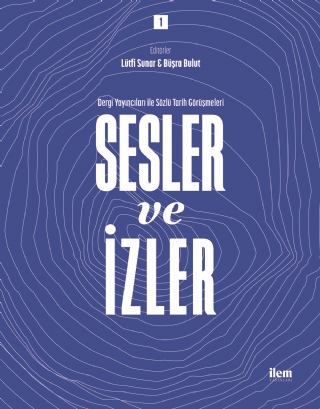
Recent developments in the world and in Turkey have accelerated the studies on the history of thought and brought these discussions to the center. Islamism, too, constitutes one of the most vibrant areas of Turkey's political and intellectual life. The increase and interest in the number of discussions and publications on Islamic thought determined the quality of the studies, while at the same time allowing the sources to diversify. As in all political views, press and publications have an important place in Islamist thought. Ideas in this field have carried out publishing activities in order to convey their message to large masses. In this sense, in order to understand the history of Islamism, it is necessary to understand the history of the press.
The Islamist Journals Project (İDP), which was implemented by the Scientific Studies Association (ILEM) in 2013, aimed to add a new dimension to the thought and debate on Islamism and to contribute to the rethinking of Islamist issues through journals, which are the most important primary source of Islamist thought. Within the scope of the project, these journals were archived and made available digitally. The fact that the printed source has become accessible has illuminated a large area in the context of the determination, explanation and comparison of words, actions and facts in this field. The IDP Oral History study further expanded this field and colored and diversified the period researches through the personal testimonies of the actors who gave life to the printed sources. This book in your hand includes interviews with 34 people within the scope of oral history. This book, in which 34 different names testify, gives a lot of information about the adventure, transformations and fractures of Islamist thought in Turkey after 1970. These narratives may not radically change what we know, on the contrary, they may confirm the presuppositions we have in the study of the period, provide a new perspective, or point to a point that is not always said behind what is said. What we want to do with this book is not to confirm the information and fact in the printed sources, but to approach the period under study in different ways.
The Islamist Journals Project (İDP), which was implemented by the Scientific Studies Association (ILEM) in 2013, aimed to add a new dimension to the thought and debate on Islamism and to contribute to the rethinking of Islamist issues through journals, which are the most important primary source of Islamist thought. Within the scope of the project, these journals were archived and made available digitally. The fact that the printed source has become accessible has illuminated a large area in the context of the determination, explanation and comparison of words, actions and facts in this field. The IDP Oral History study further expanded this field and colored and diversified the period researches through the personal testimonies of the actors who gave life to the printed sources. This book in your hand includes interviews with 34 people within the scope of oral history. This book, in which 34 different names testify, gives a lot of information about the adventure, transformations and fractures of Islamist thought in Turkey after 1970. These narratives may not radically change what we know, on the contrary, they may confirm the presuppositions we have in the study of the period, provide a new perspective, or point to a point that is not always said behind what is said. What we want to do with this book is not to confirm the information and fact in the printed sources, but to approach the period under study in different ways.
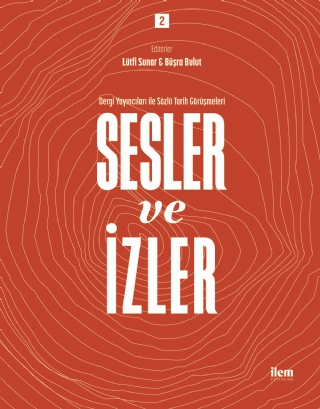
Recent developments in the world and in Turkey have accelerated the studies on the history of thought and brought these discussions to the center. Islamism, too, constitutes one of the most vibrant areas of Turkey's political and intellectual life. The increase and interest in the number of discussions and publications on Islamic thought determined the quality of the studies, while at the same time allowing the sources to diversify. As in all political views, press and publications have an important place in Islamist thought. Ideas in this field have carried out publishing activities in order to convey their message to large masses. In this sense, in order to understand the history of Islamism, it is necessary to understand the history of the press.
The Islamist Journals Project (İDP), which was implemented by the Scientific Studies Association (ILEM) in 2013, aimed to add a new dimension to the thought and debate on Islamism and to contribute to the rethinking of Islamist issues through journals, which are the most important primary source of Islamist thought. Within the scope of the project, these journals were archived and made available digitally. The fact that the printed source has become accessible has illuminated a large area in the context of the determination, explanation and comparison of words, actions and facts in this field. The IDP Oral History study further expanded this field and colored and diversified the period researches through the personal testimonies of the actors who gave life to the printed sources. This book in your hand includes interviews with 34 people within the scope of oral history. This book, in which 34 different names testify, gives a lot of information about the adventure, transformations and fractures of Islamist thought in Turkey after 1970. These narratives may not radically change what we know, on the contrary, they may confirm the presuppositions we have in the study of the period, provide a new perspective, or point to a point that is not always said behind what is said. What we want to do with this book is not to confirm the information and fact in the printed sources, but to approach the period under study in different ways.
The Islamist Journals Project (İDP), which was implemented by the Scientific Studies Association (ILEM) in 2013, aimed to add a new dimension to the thought and debate on Islamism and to contribute to the rethinking of Islamist issues through journals, which are the most important primary source of Islamist thought. Within the scope of the project, these journals were archived and made available digitally. The fact that the printed source has become accessible has illuminated a large area in the context of the determination, explanation and comparison of words, actions and facts in this field. The IDP Oral History study further expanded this field and colored and diversified the period researches through the personal testimonies of the actors who gave life to the printed sources. This book in your hand includes interviews with 34 people within the scope of oral history. This book, in which 34 different names testify, gives a lot of information about the adventure, transformations and fractures of Islamist thought in Turkey after 1970. These narratives may not radically change what we know, on the contrary, they may confirm the presuppositions we have in the study of the period, provide a new perspective, or point to a point that is not always said behind what is said. What we want to do with this book is not to confirm the information and fact in the printed sources, but to approach the period under study in different ways.
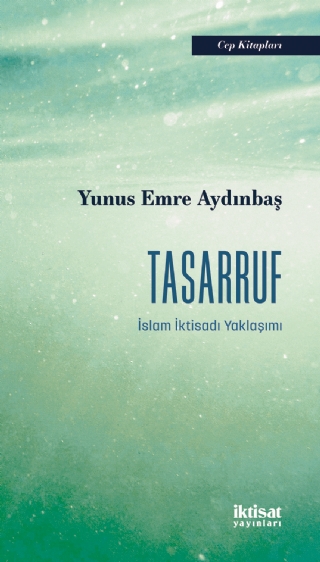
In this sixth book of the Pocket Books series, which aims to deal with the basic institutions and issues of Islamic economics in a content that can be easily understood by people of all levels, rather than a theoretical depth; The issue of saving, which has not received the attention of Islamic economics researchers, has been handled not only from an economic point of view, but also from a multifaceted perspective in terms of social, legal, moral and cultural aspects.
Despite its small volume, the work reveals the current state of Islamic economic studies through the concept of savings, and invites the reader to a modest search for the political economy of Islam from the crossroads of thought on the question of how the savings phenomenon can be shaped in Islamic economy.
Despite its small volume, the work reveals the current state of Islamic economic studies through the concept of savings, and invites the reader to a modest search for the political economy of Islam from the crossroads of thought on the question of how the savings phenomenon can be shaped in Islamic economy.
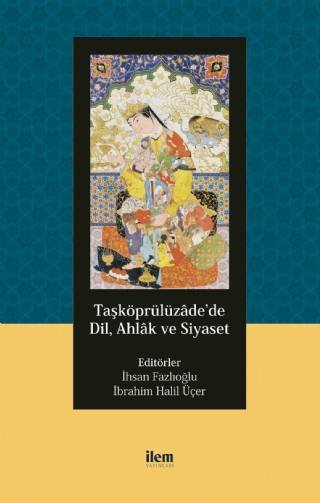
Taşköprülüzâde, one of the most prolific names of the Islamic tradition of thought in the 16th century, on the one hand gives a true representation of his era, which is called the Late Renewal Period and which stands out with its methodological integration efforts, on the other hand, stands out as a complete heir to the scientific knowledge produced in previous periods. In this respect, he reconsidered the main problems that developed within the traditions of theology, philosophy and mysticism, which he inherited, in accordance with the gradual understanding of knowledge and reality of his age, and brought a holistic view to different fields of theoretical and practical thought with the works he wrote.
This book, on the one hand, reveals Taşköprülüzâde's contributions to the field of practical philosophy through the basic concepts of political and moral thought, on the other hand, it shows the ways in which the thinker deals with the tradition of Islamic linguistics and its main problems by focusing on the linguistics tradition. In addition, in the book, the reader will have the opportunity to observe the practical politics of Taşköprülüzâde, who is also a judge, by seeing how Taşköprülüzâde has contributed to the polemic literature that can be considered current in terms of the thinker's refusal against the Jews.
This book, on the one hand, reveals Taşköprülüzâde's contributions to the field of practical philosophy through the basic concepts of political and moral thought, on the other hand, it shows the ways in which the thinker deals with the tradition of Islamic linguistics and its main problems by focusing on the linguistics tradition. In addition, in the book, the reader will have the opportunity to observe the practical politics of Taşköprülüzâde, who is also a judge, by seeing how Taşköprülüzâde has contributed to the polemic literature that can be considered current in terms of the thinker's refusal against the Jews.
